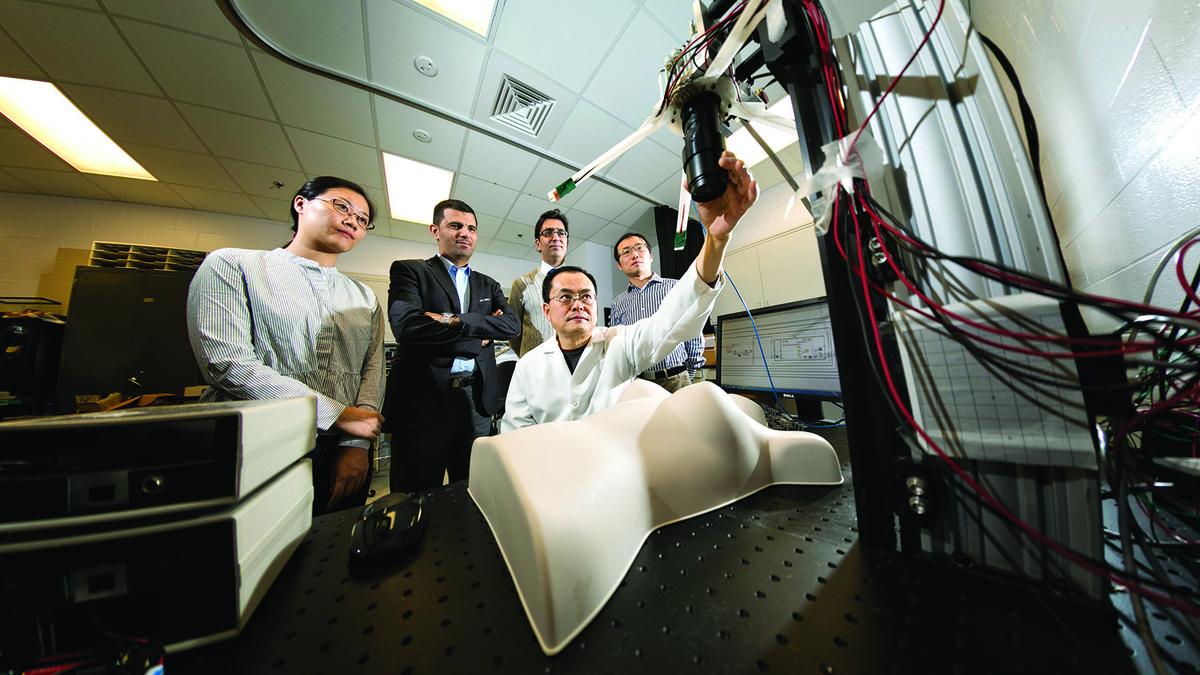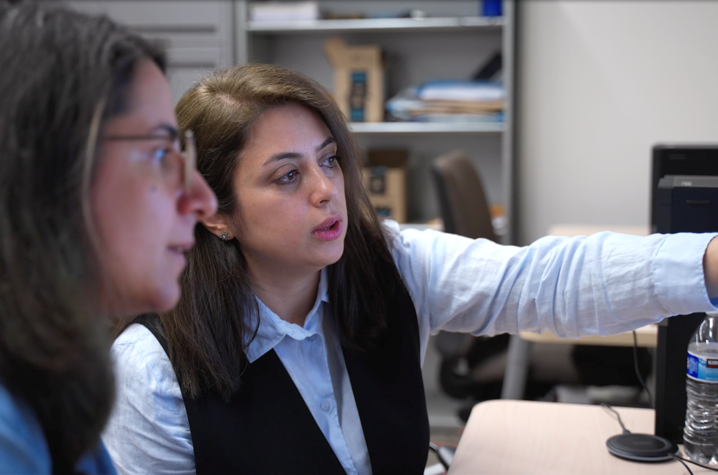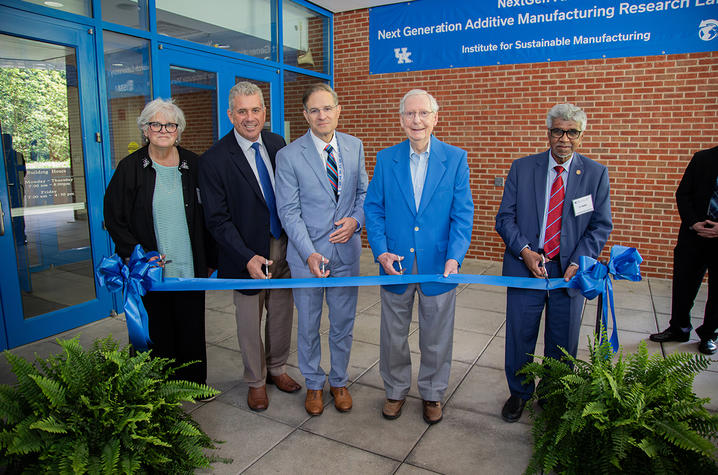Professor Guoqiang Yu (Ph.D.) of the F. Joseph Halcomb III, M.D. Department of Biomedical Engineering has been awarded a two-year, $420,750 R21 grant from the Eunice Kennedy Shriver National Institute of Child Health & Human Development of the National Institutes of Health (NIH). This grant supports a project titled “A Low-cost Compact Diffuse Speckle Contrast Flow-oximeter for Neonatal Brain Monitoring,” a multidisciplinary effort involving collaboration with Dr. Elie G Abu Jawdeh (M.D., assistant professor of pediatrics) and Dr. Henrietta S Bada (M.D., Mary Florence Jones Professor and vice chair of pediatrics) of the Department of Pediatrics, University of Kentucky. With this NIH funding support, Yu and his team will develop and test a noninvasive, low-cost, fast, continuous and portable near-infrared diffuse speckle contrast flow-oximeter (DSCFO) device to enable simultaneous quantification of cerebral blood flow, cerebral blood oxygen saturation and cerebral metabolic rate of tissue oxygen consumption in an infant’s brain.
Yu is passionate about the prospect of this project.
“This device will be put to test in the neonatal intensive care unit for continuous monitoring of cerebral hemodynamic and metabolic variations in pre-term infants with patent ductus arteriosus undergoing indomethacin treatment. This pilot research will provide key information to validate the DSCFO device for clinical use and demonstrate its potential to provide prompt biomarkers for evaluating neuronal brain health and subsequent management of critically ill infants, who are at highest risk for developing neurological morbidities.”
“Being awarded with such competitive funding support from the NIH with an interdisciplinary team of researchers speaks not only to the quality of research by Dr. Yu and his team, but also to the fact that engineers and clinicians at the University of Kentucky are advancing health care and treatment in a most effective way to benefit patients,” stated Guigen Zhang, chair of the F. Joseph Halcomb III, M.D. Department of Biomedical Engineering.
The device the team is developing is based on a technology with which a utility patent was recently filed by the UK Patent Office to the USPTO: “A Compact Low-Cost Fiberless Flow-Oximeter for Monitoring of Cerebral Hemodynamics and Metabolism in Neonatal and Infant Brains.”



